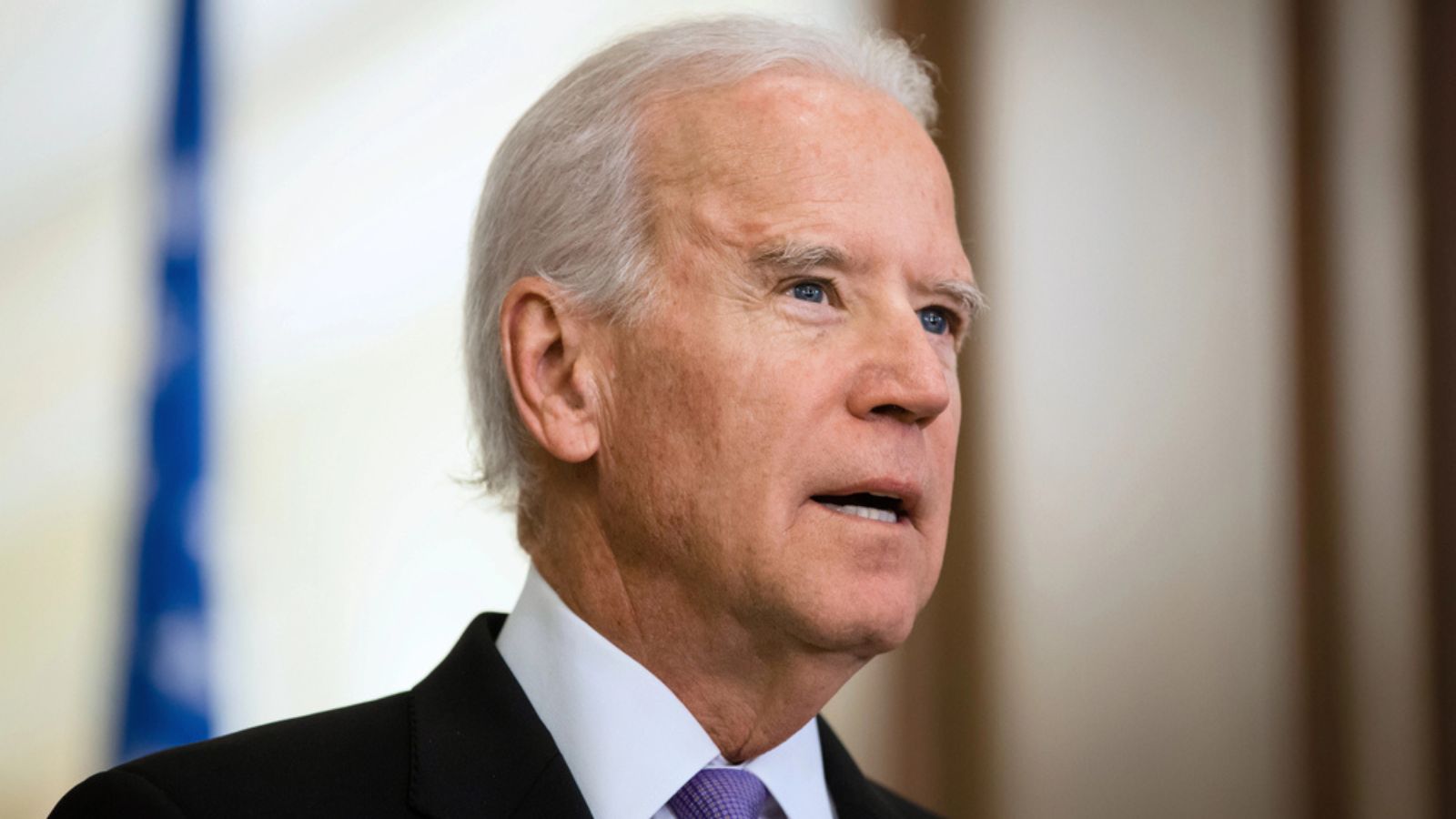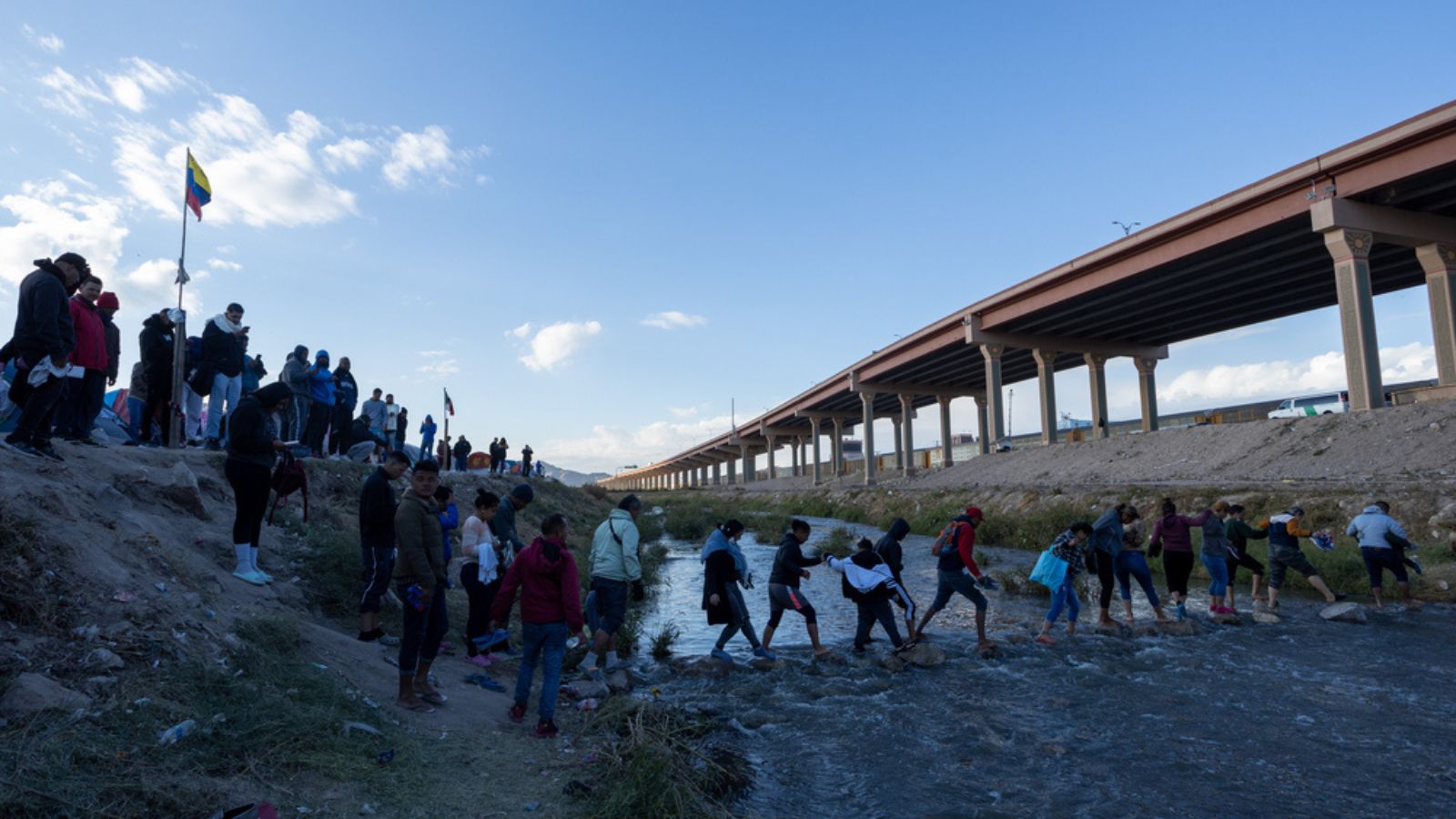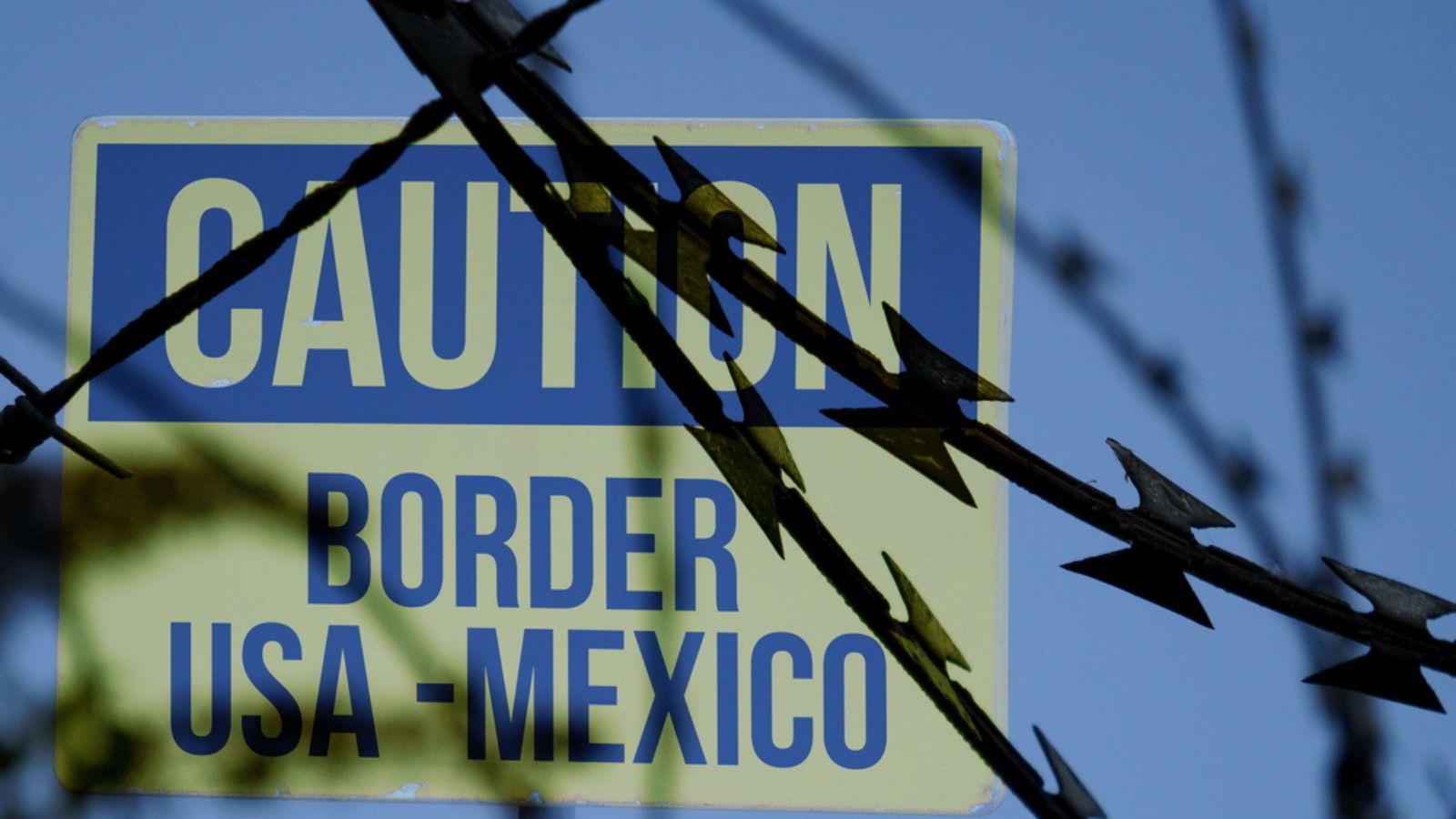The United States and Mexico have announced a concerted effort to address the surge in illegal immigration across their mutual border.
Following a recent dialogue between U.S. President Joe Biden and his Mexican counterpart, Andres Manuel Lopez Obrador, both leaders are committed to implementing strategies that would not only curb illegal crossings but also tackle the underlying economic and security challenges driving migration.
During their phone conversation on Sunday, the presidents agreed to immediate collaborative measures aimed at significantly reducing irregular border crossings, while ensuring that human rights are safeguarded.
This initiative reflects a broader commitment by both nations to address the complexities of migration in a humane and effective manner.
Read More: Trump Seems To Hold Israel Responsible for Rise in Anti-Semitism

President Biden, who is currently campaigning for re-election, has adopted a firmer stance on border security as the issue of immigration gains prominence among American voters.
His administration is under scrutiny from Republicans, who argue that Biden’s policies have been ineffective compared to the more stringent measures enforced during Donald Trump’s presidency.
The Biden administration is exploring the use of executive powers to potentially prevent migrants from crossing the border, although such actions could face legal obstacles and opposition within his own party.
Additionally, discussions are underway to potentially extend temporary legal status and work permits to undocumented immigrants in the U.S. who are married to American citizens.
This move could balance the stricter border control measures politically.
Also Read: Trump Blasts Sen. Graham for Disagreeing With Him in Clash Over Abortion Policies

Earlier this year, President Biden supported a bipartisan Senate bill granting him enhanced authority to manage migrant entries at the U.S.-Mexico border.
However, the proposal was shelved after facing opposition from Republicans, influenced by Trump’s disapproval.
White House Press Secretary Karine Jean-Pierre reiterated the administration’s support for the bill, emphasizing ongoing evaluations of available options to manage the situation effectively.
In Mexico, where presidential elections are scheduled for June 2, immigration does not rank high among voter concerns, based on recent polls.
Nonetheless, Lopez Obrador’s likely successor, Claudia Sheinbaum, continues to lead the race.
Sheinbaum has been associated with Lopez Obrador’s progressive National Regeneration Movement (MORENA).
Read Next: President Zelenskyy Says Ukraine Ran Out of Missiles To Defend Trypillia Thermal Power Plant

Lopez Obrador has expressed a desire to maintain open borders for legal immigration while staunchly opposing irregular migration.
He credited social initiatives supported by Mexico in other Latin American countries with helping to decrease the number of migrants arriving at the U.S.-Mexico border.
These programs are part of a broader strategy to address the migration issue at its source.
The effectiveness of these measures is reflected in the recent statistics from the U.S. Border Patrol, which show a significant reduction in illegal crossings.
From a record high of 250,000 in December, the numbers dropped to 137,000 by March, a decline that both U.S. and Mexican officials attribute to enhanced enforcement measures by Mexico.
This bilateral initiative marks a significant step in the collaborative efforts of the United States and Mexico to manage their shared border responsibly and effectively, aiming to ensure both security and respect for human rights.





 Tags:
Tags:










